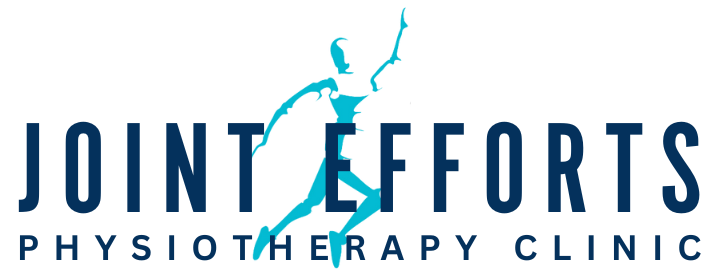Neurotherapy Service in Noida

Best Neurotherapy treatment: Optimizing Your Recovery at Joint Efforts Physiotherapy
At Joint Efforts Physiotherapy, we providing you with the most advanced and effective treatments available for your physiotherapy needs. One such approach is neurotherapy, a technique that harnesses the power of the brain to enhance your rehabilitation journey.
A Powerful Partnership: Physiotherapy and Neurotherapy at Joint Efforts
At Joint Efforts Physiotherapy, we believe in harnessing the power of synergy to achieve the best possible outcomes for our patients. That’s why we proudly offer a unique combination of physiotherapy and neurotherapy, creating a powerful partnership that accelerates your recovery journey.
Physiotherapy: The Foundation for Healing
Physiotherapy forms the cornerstone of our approach. Our skilled therapists utilize manual therapy techniques, exercise programs, and other modalities to address your physical limitations. This can include improving flexibility, strengthening muscles, restoring balance, and retraining movement patterns.
Neurotherapy: Optimizing Your Brain’s Role
Neurotherapy acts as a game-changer by working directly with your brain. Through real-time brainwave feedback, it helps you learn to self-regulate brain activity. This can lead to significant improvements that directly impact your physiotherapy goals.
What is Neurotherapy?
Neurotherapy, also known as EEG biofeedback, is a form of treatment that uses real-time monitoring of brainwave activity to improve self-regulation. By providing feedback on your brainwave patterns, neurotherapy allows you to learn to optimize brain function, leading to improvements in various aspects of your recovery.
How Can Neurotherapy Benefit You?
Neurotherapy offers a range of potential benefits for individuals undergoing physiotherapy, including:
- Pain Management: Studies suggest that neurotherapy can be effective in reducing chronic pain by regulating pain perception centres in the brain.
- Improved Motor Function: Neurotherapy can help improve motor control, coordination, and balance, which are crucial for regaining movement and function after an injury.
- Enhanced Cognitive Function: Neurotherapy may improve cognitive function such as attention, memory, and focus, which can be beneficial for those recovering from neurological conditions or injuries.
- Reduced Anxiety and Stress: Neurotherapy can help regulate emotional responses, leading to reduced anxiety and stress, which can hinder the healing process.
Why Choose Joint Efforts Physiotherapy for Neurotherapy?
“At Joint Efforts Physiotherapy, our team of experienced physiotherapists is trained in using state-of-the-art neurotherapy equipment. We will work closely with you to develop a personalized treatment plan that integrates neurotherapy with other physiotherapy techniques to maximize your recovery potential.”
Here’s what sets us apart:
- Individualized Treatment Plans: We understand that every patient’s needs are unique. We will tailor your neurotherapy program to target your specific goals and condition.
- Experienced Therapists: Our physiotherapists are highly trained and experienced in using neurotherapy to achieve optimal results.
- Comprehensive Care: We integrate neurotherapy with other physiotherapy techniques to provide a holistic approach to your rehabilitation.
Ready to take control of your recovery?
“If you’re interested in learning more about how neurotherapy can benefit your physiotherapy journey, contact Joint Efforts Physiotherapy today to schedule a consultation with one of our experienced therapists. We’ll be happy to discuss your individual needs and determine if neurotherapy is right for you.”
Who Can Benefit from Neurotherapy at Joint Efforts Physiotherapy?
Neurotherapy has the potential to be a valuable tool for a wide range of individuals undergoing physiotherapy at Joint Efforts. Here are some specific conditions where neurotherapy might be particularly helpful:
- Chronic Pain: Individuals with chronic pain conditions like back pain, arthritis, or migraines may find relief through neurotherapy’s ability to regulate pain perception in the brain.
- Movement Disorders: People with conditions affecting movement, such as Parkinson’s disease, stroke, or multiple sclerosis, can benefit from neurotherapy’s potential to improve motor control, coordination, and balance.
- Neurological Conditions: Those recovering from neurological conditions like concussions, traumatic brain injuries, or epilepsy may see improvements in cognitive function, memory, and focus with neurotherapy.
- Anxiety and Stress: Individuals struggling with anxiety or stress that is hindering their rehabilitation process can find neurotherapy helpful in regulating emotional responses and promoting relaxation.
- Post-Surgical Recovery: Neurotherapy can be a valuable addition to post-surgical rehabilitation by enhancing motor function relearning and potentially reducing pain perception.
- Performance Enhancement: Athletes or individuals looking to optimize their performance may find neurotherapy beneficial for improving focus, coordination, and reaction times.
It’s important to note that neurotherapy is not a one-size-fits-all solution. During your consultation at Joint Efforts Physiotherapy, our therapists will assess your individual needs and condition to determine if neurotherapy is the right approach for you.
Here are some additional factors to consider:
- Openness to trying new modalities: Neurotherapy is a relatively new approach, and being open to trying new techniques can be beneficial.
- Commitment to treatment: Regular neurotherapy sessions and participation in home training exercises are crucial for optimal results.
- Underlying medical conditions: Certain medical conditions may not be suitable for neurotherapy.
If you have any questions or would like to discuss if neurotherapy is right for you, contact Joint Efforts Physiotherapy today to schedule a consultation with one of our experienced therapists.
What to Expect During Neurotherapy at Joint Efforts Physiotherapy
Curious about what a neurotherapy session at Joint Efforts Physiotherapy entails? Here’s a breakdown of what you can expect:
Preparation:
- Consultation: Before diving into neurotherapy, you’ll have a thorough consultation with one of our experienced therapists. This will involve discussing your medical history, current condition, and physiotherapy goals.
- Understanding Neurotherapy: The therapist will explain how neurotherapy works and answer any questions you may have about the process.
The Neurotherapy Session:
- Comfortable Setting: You’ll be comfortably seated in a relaxed environment.
- Sensor Placement: Electrodes (small sensors) will be placed on your scalp using a special paste or cap to measure your brainwave activity. This is a painless procedure.
- Real-Time Feedback: The sensors will transmit your brainwave activity to a computer screen. The therapist will customize the feedback system based on your goals. For instance, calming sounds or visuals might appear when your brain produces desired wave patterns.
- Interactive Training: Over multiple sessions, you’ll learn to associate positive feedback with desired brainwave patterns. This helps train your brain to self-regulate its activity.
The Role of the Therapist:
- Guidance and Support: Throughout the session, the therapist will be present to guide you, monitor your progress, and adjust the feedback system as needed.
- Communication is Key: Feel free to ask questions or express any concerns you may have during the session.
After the Session:
- Review and Discussion: The therapist will discuss your experience and any initial changes you might notice.
- Home Exercises: You may be given specific exercises or activities to reinforce the skills learned during the session.
- Planning Ahead: The therapist will likely schedule follow-up sessions to continue your neurotherapy program and monitor your progress.
Important Points to Remember:
- Number of Sessions: The number of neurotherapy sessions needed can vary depending on your individual condition and goals. The therapist will discuss a personalized plan during your consultation.
- Commitment is Key: Regular attendance and participation in home exercises are crucial for maximizing the benefits of neurotherapy.
- Relaxation is Key: Approaching the sessions with a relaxed and open mind can enhance the effectiveness of neurotherapy.
Ready to Experience Neurotherapy at Joint Efforts?
If you’re interested in learning more about how neurotherapy can benefit your physiotherapy journey, contact Joint Efforts Physiotherapy today to schedule a consultation with one of our experienced therapists. We’ll be happy to discuss your specific needs and determine if neurotherapy is the right approach for you.


